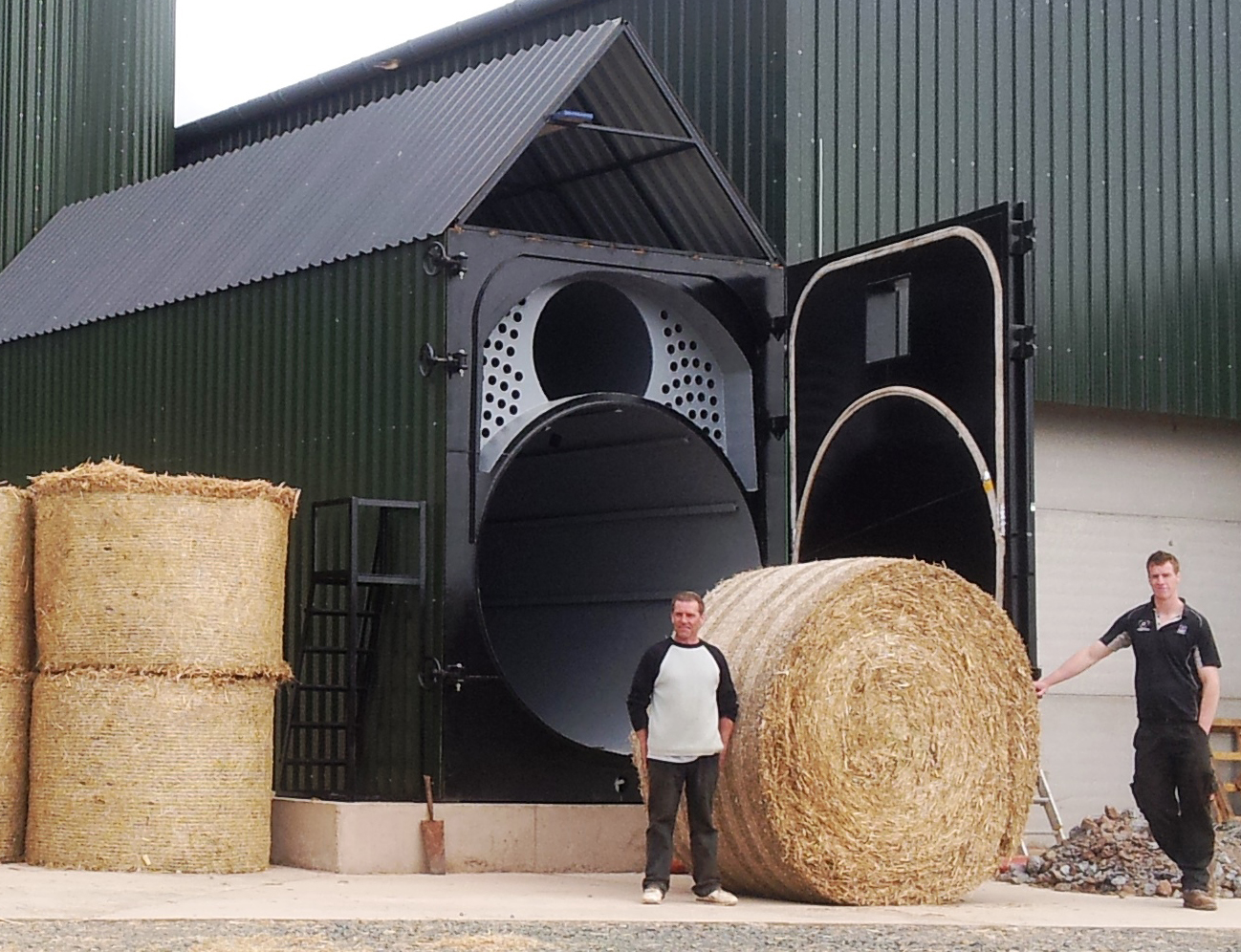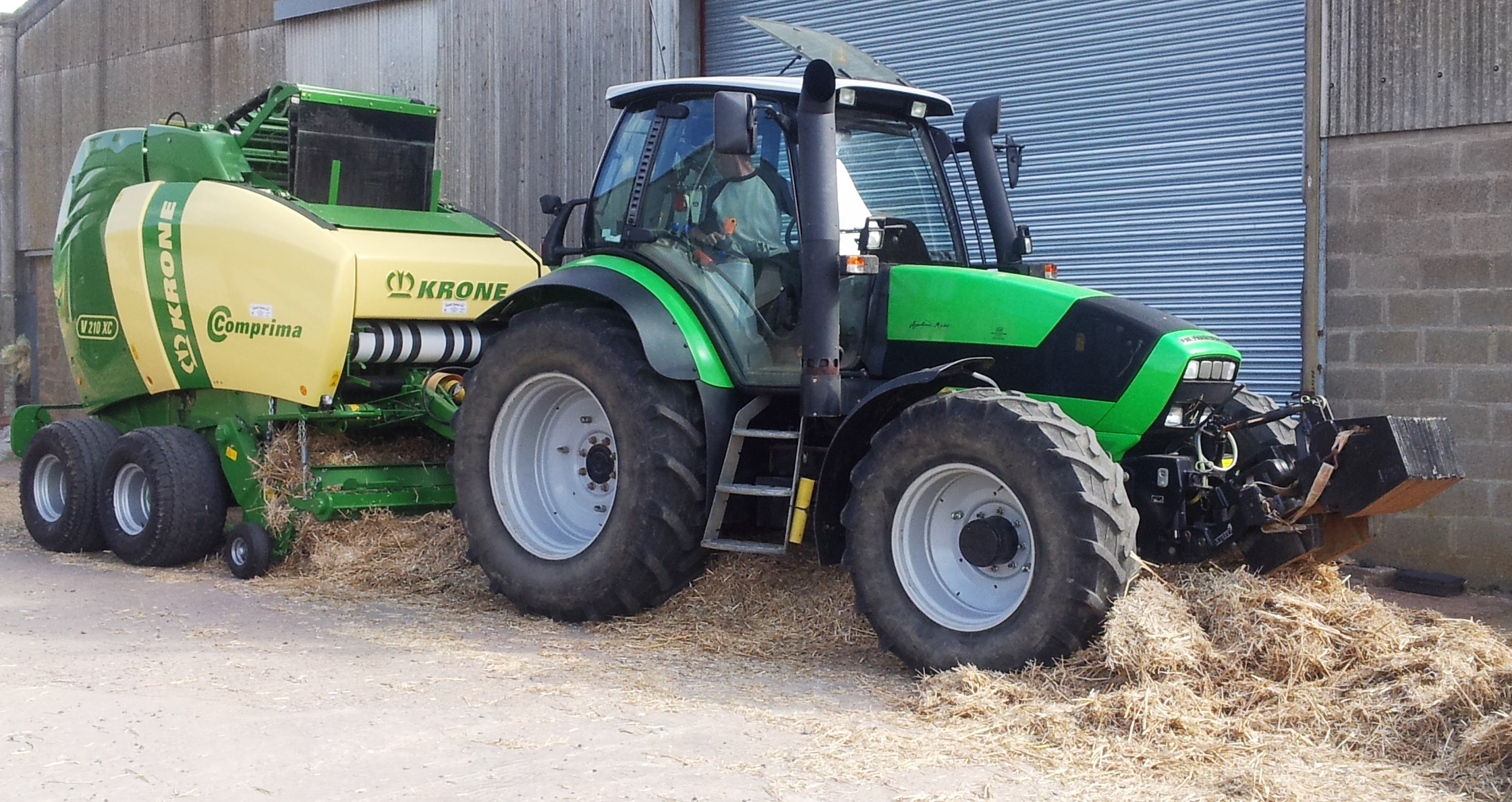
A trial on a Scottish farm as part of the commissioning process for a new biomass boiler has shown the benefits of creating high density bales using a Krone Comprima V210 XC baler for use as biomass fuel in Big Straw Boilers.
John Seed, who runs family farming business Woodend Farming Partnership in the Scottish Borders with his wife and son, is in the process of commissioning a new Topling Big Straw Bale boiler. Designed by Topling Ltd, the new BSB 950kW is the largest unit of its type in Europe and will use some 200-300 tonnes of rape straw each year for district heating, drying crops and wood fuel.
As a trial, The Borders Machinery Ring was contracted to re-bale some 1.5 m diameter round bales into larger 2 m ones. Allan Robb who works for local farmer Mark Tullie and John’s son Donald used a high density Krone Comprima V210 XC baler to get 3½ to 4 of the smaller 300 kg bales into each new bale.
At 14% moisture these weigh over a tonne each, but, with the boiler able to take three round bales at a time, increasing the density will increase the burn time and reduce the amount of loading required. The Krone V210 XC is capable of producing even larger 2.1 m bales, which would improve efficiency further.
“Mark is rapidly becoming the ‘go to’ guy locally for baling straw for use in biomass boilers now that he has the Krone baler, it is a very impressive bit of machinery,” said John Seed.

“This trial shows the benefits of making denser bales for use in boilers, and means that the BSB950 holds more than three times the fuel that our old 450kW boiler did. It doubles the heat output and reduces the number of times we will need to re-fuel the boiler by two-thirds. It means that we can get 3.3 tonnes of fuel into the boiler for each burn, which will dry the same amount of grain as 1,400 litres of diesel.”
